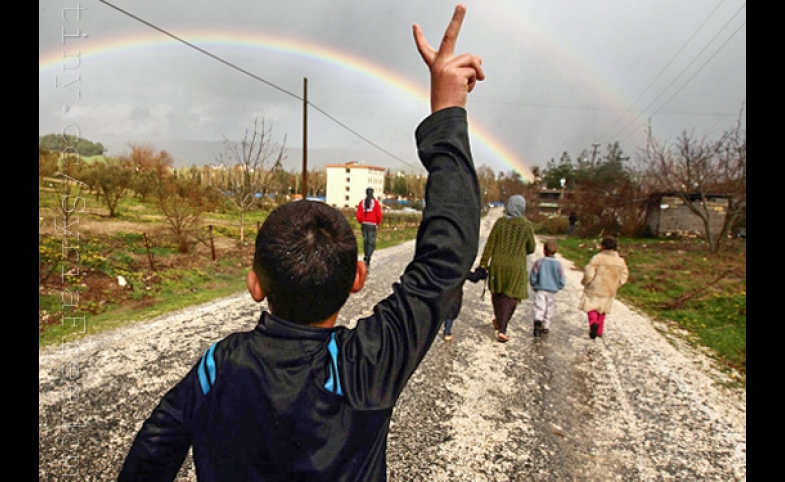Note: This blog is part 2 of a 2-part series. Part 1 can be found here. The second area of Turkey’s ethos gap is in relation to the Kurdish question and the confrontations with Armenians and Alevis – longstanding...
KEEP READINGThe CPD Blog is intended to stimulate dialog among scholars and practitioners from around the world in the public diplomacy sphere. The opinions represented here are the authors' own and do not necessarily reflect CPD's views. For blogger guidelines, click here.

The “Ethos Gap”: A Challenge or an Opportunity for Turkey’s Nation Brand? (Part 1)
Note: This blog is part one of a two-part series.
Public diplomacy scholars and practitioners frequently discuss the “say-do gap,” which refers to the discrepancy between discourse and actions. This discrepancy has an adverse effect on the credibility and legitimacy of a nation brand. A nation’s domestic political conduct and whether it can practice what it preaches are inherently correlated with its international reputation. Hence, domestic political conduct is inevitably at the center of a nation’s brand.
The say-do gap can be exacerbated by a moralistic and values-oriented foreign policy discourse that contradicts a country’s domestic engagements. Such a deficiency can be termed an “ethos gap,” which underlines the disjuncture between stated values and the reality on the ground. Ethics, values, and morals-driven foreign policy undermines real-politik and and puts a nation’s domestic political actions in the limelight. Domestic political conduct is perhaps more meaningful in cases where the nation brand is based on an idealistic moral policy. An idealistic expectation is likely to undermine a realistic assessment of a nation brand. Hence, the discrepancy between the intended and the actual nation brand can send perplexing messages to foreign audiences.
Over the past few years, Turkey has been attempting to craft its nation brand on global humanitarian values. Key points in the Turkish foreign policy framework have been justice, equal representation rights, political inclusiveness, support for regional political demands, and global governance. Turkish policy makers have been positing Turkey as a values-driven nation in pursuit of global governance. Turkey’s current position as the third biggest global humanitarian donor is reflective of its foreign aid initiatives. For example, over two million Syrians have found refuge in Turkey and hundreds of thousands are hosted in Turkish camps that have been praised by the UN. Turkish foreign policy makers have been vocal about providing foreign aid, which they frame as Turkey’s historical duty and its self-proclaimed “manifest destiny,” inspired by its Ottoman heritage. However, Turkey has fallen short of living up to its own discourse, most notably in the domestic realm (see below). As a result, the humanitarian element of Turkey’s nation brand has been undermined by its idealistic discourse. creating an ethos gap despite strong support for global humanitarian issues and active engagement in global governance.
Turkey’s ethos gap manifests itself in three areas. The first area is coherence in its values-based foreign policy discourse. Turkey’s inconsistency in applying universal human rights, both domestic and international, is contradictory to Turkey’s humanitarian discourse. While the Turkish response to the Palestinian plight has been informed by an Islamic point of view, it has failed to fully embrace the universal humanitarian aspect of the tragedy. Although Turkey has been a vocal promoter of peace and justice in Gaza and in the Israeli-Palestinian conflict, its approach to Darfur has been far less critical or outspoken. This same inconsistency--perhaps stemming from historic anxieties around partition--appeared in its initial hesitancy to engage with the Kurdish region in Syria during the siege of ISIL/DAESH. In addition, the limited expression of concern on similar domestic issues also contradicts the ethos-based nation brand crafting. Quite often, the plight of fellow Muslims in other parts of the world hold center stage in Turkish political discourse, while similar local issues are downplayed. A similar, ethical response towards domestic cases would consolidate Turkey’s foreign policy discourse on conscience.
Photo by Freedom House | CC BY 2.0
Visit CPD's Online Library
Explore CPD's vast online database featuring the latest books, articles, speeches and information on international organizations dedicated to public diplomacy.
POPULAR ARTICLES
-
January 29
-
January 20
-
January 28
-
January 2
-
January 8
Join the Conversation
Interested in contributing to the CPD Blog? We welcome your posts. Read our guidelines and find out how you can submit blogs and photo essays >.













